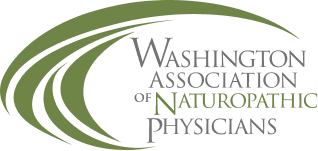13 April 2023
The highlights below are from the quarterly meeting of the Vaccine Advisory Committee (VAC) in April 2023. Much of this report is adapted directly from the presentations by the Washington State Department of Health (DOH).
Updates from Washington State Department of Health. There are many organizations currently working on collecting and compiling various data around COVID-19. Teams are presently working on identifying a "home" for this information (likely within DOH) as well as exploring funding opportunities for a project of this scale.
Washington State is leading the nation in piloting a program connecting our state's Immunization Information System (IIS) with the Department of Defense.
The Washington State DOH continues its work to improve access to the Vaccines for Children (VFC) program in rural and underserved communities throughout the state.
The Washington State Immunization Summit will be held on 25 May 2023, with both virtual and in-person (Greater Tacoma Convention Center) attendance opportunities. "The Summit will gather stakeholders from across Washington State for a hybrid, one-day conference on immunizations across the lifespan." The intended audience includes "healthcare professionals, public health jurisdictions, health care systems, Community Health Workers, and trusted messengers."
COVID-19 vaccination rates and disease burden. In terms of vaccination against COVID-19: 81.3% of all Americans (nationally) have received at least one dose; 85.4% of Washingtonians have had at least 1 dose; 70.7% of Washingtonians have completed their COVID-19 series - with the highest proportions in Asian and Pacific Islander populations; and 97.7% of the overall population 65 years and older has completed their COVID-19 series.
The DOH is using wastewater to monitor COVID disease burden in our communities, currently monitoring 30 facilities across the state. Wastewater can be used to detect and track disease trends. COVID can be detected in wastewater for COVID-positive people with or without symptoms. As testing decreases and home tests are rarely reported, wastewater is an increasingly important way to monitor local disease burden.
Standing Orders related to COVID-19 immunizations. As of 11 May 2023, previously issued standing orders to administer the COVID-19 vaccine can no longer be used.
Anticipated additional COVID booster authorization. The World Health Organization (WHO)’s Strategic Advisory Group of Experts on Immunization (SAGE) has revised the roadmap for COVID-19 vaccines. The Food and Drug Administration (FDA) is expected to announce authorization for an additional bivalent booster dose for "high priority" individuals (those aged 65+ and those with immunocompromising health conditions). Once the FDA officially approves this additional booster, approval by the Centers for Disease Control and Prevention (CDC) is expected to follow.
Routine vaccination coverage in children. Routine vaccination coverage rates have been stabilizing since December 2021. The DOH is working with partners to continue to increase vaccination coverage throughout the community. Overall vaccine coverage levels are lower now than pre-pandemic levels. In particular, there are large gaps in pneumococcal conjugate vaccine (PCV) and diphtheria-tetanus-pertussis (DTaP) vaccine coverage for children ages 19-35 months. Current rates of coverage for children ages 4-10 years are similar to pre-pandemic levels. Coverage for children ages 11-12 years is behind in all categories. Coverage in children ages 13-17 years is similar to pre-pandemic levels.
Who needs which PCV vaccine? DOH offers this useful tool!
https://doh.wa.gov/sites/default/files/2022-05/348-875-AdultPCVRecommendations.pdf?uid=628055768f87c
Child/Adolescent Immunization Major Changes/Recommendations.
- COVID-19 vaccines: Added and noted as “1v” and “2v” for mono and bivalent
- Priorix added as an option for MMR; considered “fully interchangeable” with MMR II
- PCV15 added to the pneumococcal note to include
- Revised the text for vaccine injury compensation to include the Countermeasures Injury Compensation Program for COVID-19 vaccine
Child/Adolescent Schedule Changes/Recommendations.
- Dengue: Recommended for seropositive children living in endemic areas, not for children traveling or visiting endemic dengue areas
- Influenza: Clarified egg allergies; no use of live attenuated to close contacts of immunosuppressed who require a protective environment
- Meningococcal ACWY: No use before age 10
- Men B: Dosing routines for Trumenba based on spacing
- Polio: Special situations added
- Hepatitis B: guides management of infants born to mothers who are hepatitis B surface antigen positive or whose HBsAg status is unknown
- MMR vaccination: Updated to include additional MMR doses in a mumps outbreak setting
Adult Immunization Major Changes/Recommendations.
- COVID-19 vaccines: Added and noted as “1v” and “2v” for mono and bivalent
- PreHevbrio: Added as an option for Hepatitis B for adults
- Added American Pharmacists Association as an approving partner
- Revised the text for vaccine injury compensation to include the Countermeasures Injury Compensation Program for COVID-19 vaccine
Adult Schedule Change.
- Hepatitis B vaccination
- Continues to be universally recommended for all adults 19 through 59
- Added aged >60 with known risk factors should complete series
- Added >60 without known risk factors for hepatitis B virus infection may complete Hep B vaccine series
- PreHevbrio - 3 dose series (4 dose for hemodialysis) added as an option
- Influenza vaccination: Preference for one of quadrivalent high-dose inactivated influenza vaccine, quadrivalent recombinant influenza vaccine, or quadrivalent adjuvanted inactivated influenza vaccine is preferred for adults aged 65 years or older
- MMR: Outbreak of mumps
- Meningococcal: Dosing regimen based on timing between doses Trumenba
- Pneumococcal: PneumoRecs VaxAdvisor: Vaccine Provider App | CDC
~Mary Koehnke ND, FABNP | WANP Liaison to WA DOH VAC
